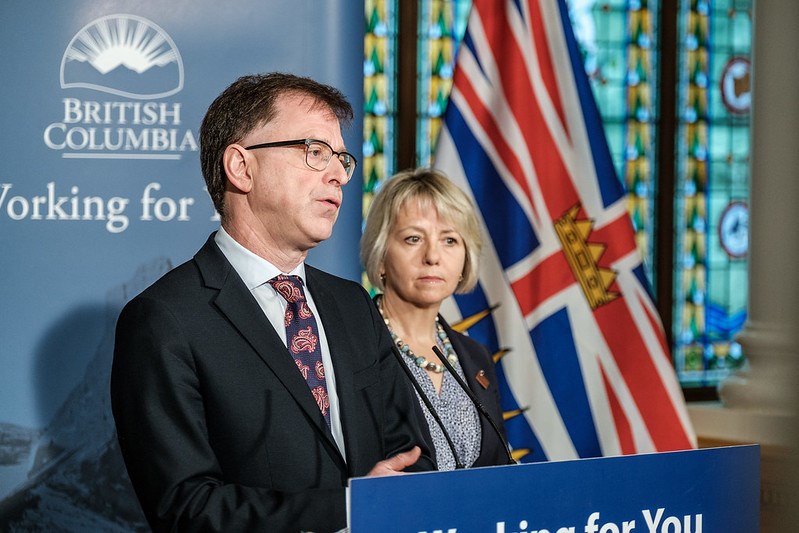The province announced six more positive cases of COVID-19 Saturday morning, March 7, bringing the B.C. total to 27 cases.
The first two are from the same household in the Fraser Health region, and stem from a man in his 50s who recently returned from Iran and started exhibiting symptoms upon his return.
The second set of cases are also from the Fraser Health region and involve two patients in their 60s who were aboard the Diamond Princess cruise ship from Feb. 11 to 17 (not the current group of passengers stranded off California). They started showing signs of the virus near the end of the 14-day quarantine period. Because COVID-19 has proven especially deadly among older patients and those with compromised immune system, both have been admitted to hospital for monitoring.
The last set of cases — the most serious, according to provincial health officer Dr. Bonnie Henry — involve two seniors at the Lynn Valley Care Centre, a senior’s care facility in North Vancouver.
"This is one of the scenarios we've been most concerned about," said Dr. Henry.
"We are in what we call an 'outbreak.'"
Health officials have implemented tight controls on the facility after they confirmed the community transmission of the contagion from case 21, a worker at the senior’s home, to the two residents.
That means curtailing the number of people moving in and out the facility, but also tracking down any other related transmissions as caregivers at senior care homes often work in multiple locations.
With the uptick in community exposures to COVID-19, Dr. Henry put a call out to churches or any other organizers of group gatherings to consider alternative arrangements like virtual prayer sessions, or cancel events altogether.
Many of the new cases have been traced back to travel to Iran, and some organizers have taken that message to heart. This week, the Iranian Tri-Cities Cultural Society decided to cancel all of its upcoming events in the lead up to Persian New Year, including a popular bazaar, seniors’ club activities, Persian language class and the Festival of Fire, which brought out about 6,000 people last year, according to the group.
Dr. Henry also told reporters Saturday that, as the number of cases related to cruise ship travel climbs, it’s time to start re-thinking your next vacation.
“We would strongly recommend people forgo that type of travel at this point,” said Dr. Henry, echoing a message earlier this week from Canada’s Public Health Officer Dr. Theresa Tam.
With their confined spaces, cruise ships present risks that cannot be fully calculated right now, added Dr. Henry. Or as Health Minister Adrian Dix put it, “If you’re asking my advice, I say, don’t go.”
The announcement of the six new cases comes a day after the province said it had activated a pandemic co-ordination plan to respond to the COVID-19 outbreak that, in three months, has swept across the world, infecting more than 100,000 people in roughly 100 countries and leading to over 3,500 deaths.
Premier John Horgan said Friday he's appointed a deputy ministers committee to oversee his government's response and it will report to a cabinet committee co-chaired by him and Health Minister Adrian Dix.
Phase one of the pandemic plan is underway and focuses on identifying and containing the disease through strong testing, border surveillance and isolating people who test positive, the government said.
It said phase two would accelerate the government's co-ordination to quickly direct actions and resources and prepare for the use of emergency powers if they become necessary.
The province has now tested over 2,000 people for the COVID-19 coronavirus since January. By the end of next week it will have four additional labs for testing and over the next month it will acquire additional machines, Horgan said.
Overall, the province has plans to deal with a sustained three- to four-month outbreak if necessary, but officials stressed that such a scenario was not certain.
Dix said B.C. is focusing on four key areas: protecting the population, protecting vulnerable citizens, protecting health workers and supporting the health-care system's capacity.
It has already implemented hospital-wide protocols to safely triage and separate anyone presenting with respiratory illness, Dix said Friday.
— With files from The Canadian Press



